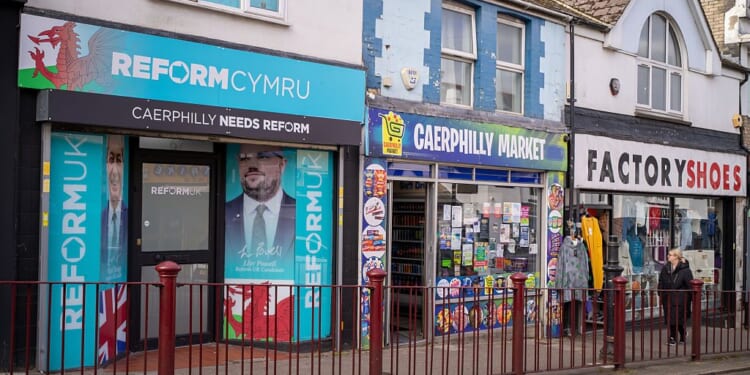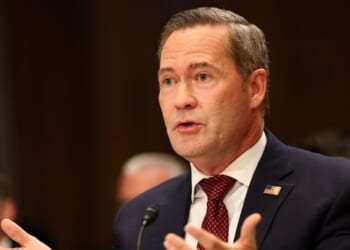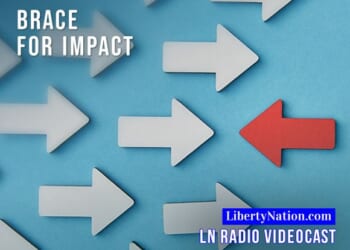It was 1976, and the nation’s eyes were fixed upon a Welsh former mining town most English people struggled to properly pronounce: Caerphilly (Car-Fill-He for those who need a vocal helping hand). The Sex Pistols had arrived on their Anarchy tour, fresh from their scandalous appearance on the Today show with Bill Grundy, in which they broke several television taboos and launched tirades of profanity. Young locals welcomed them raucously; others wanted the concert cancelled.
The Sex Pistols brought with them all the tensions dividing the nation at the time. Britain was crumbling, its youth were dejected, it had lost its place in the world and local people were feeling the bite. The band’s rebellious music captured the mood of that moment, which was overwhelmingly nihilistic. “No Future” they yelled out to those they called “flowers in the dustbin”.
Nearly 50 years later, Caerphilly is back in the spotlight, this time as the backdrop for the forthcoming by-election. Yet the town feels even more forsaken. The young people and adults I speak with in these valleys tell me the future seems lost to them. Their towns are corroding and there’s nobody left to paint it red.
The Pistols shook the foundations of the music establishment. The same is politically happening today, as the old guard of the Labour and Conservative movements has lost its monopoly. Whether we like it or not, what is undeniable about this by-election is how the rise of Reform in traditional Labour heartlands can no longer be ignored, nor can it simply be reduced to a protest vote.
It is tempting to draw parallels between the appeal of the Pistols and the rise of Reform in the valleys today. The Pistols were unashamedly anti-establishment and made no apology for wanting to break apart the status quo. This is a position openly promoted by Reform, who like to see themselves as the edgy punks who believe the rules of the game are stacked against ordinary Britons. There’s some truth in this.
We might, however, want to temper this somewhat. The Pistols’ anti-establishment sentiments were a ruse that betrayed their own ambitions. They were, after all, manufactured and benefitted from an extraordinarily gifted marketing machine. Reform have been learned students, scandalising and occasioning moral mayhem to ensure airtime. Though at least John Lydon could claim to be a man of the people who knows what it means to live in poverty and conditions of neglect, which Nigel Farage doesn’t have any claim to.
But who is authentically working class today anyway? Class consciousness, which was once the dominant identity in the valleys, has vanished. And it is hard to speak of belonging to a working class when the life-long guarantee of work no longer exists. This in fact brings into focus the crisis that is besetting the Labour Party. They still don’t know what they stand for in these post-industrial times.
Polling has revealed many familiar concerns in South Wales, from the poor state of the economy and the NHS to the terrible provision of local services, with libraries closing and public transport barely functioning. These issues resonate strongly with locals, though they are not new. Economic depression has been a continuum here; what has changed is how people are understanding and responding to it.
Much has already been made of the importance of immigration in this by-election, which was the most emotive issue during the recent BBC candidate standoff. Like the rest of the valleys of South Wales, there hasn’t been any vast influx of peoples for nearly a century. The opposite, in fact, is the case, as those who can leave tend to do so without any ambition of returning. So why are locals so concerned about immigration?
There are two obvious answers. Firstly, local people understand that the decisions affecting their lives are often made elsewhere, not only in the Senedd, but in Westminster where real power still resides. And given there is only so much money to go around, they rightly question their poverty. Seeking answers to this does not make them racist. After all, it is the government which continually tells them there is a trade-off to be made and that, due to a need to balance the books, there simply isn’t enough money to cover heating for the elderly and poor. Secondly, migration is being politicised by some to mask the devastating economic impact of Brexit; rather than focusing on this calamitous decision, they are looking for other scapegoats.
There is some truth in both these positions. It should, however, also be noted that being part of the European Union brought few direct benefits to communities such as these, even if the loss of its revenue streams is being sharply felt. In times of economic crisis, it’s always the poorest who pay the highest price.
There is, however, a much deeper malaise at work here. Anti-immigration sentiments are just one issue that is now part of a volatile political environment marked by a genuine sense of insecurity, which anybody who walks around the streets of South Wales will undeniably feel. People are fearful about their jobs, the state of the nation and the state of the world. And they have no faith in the established political parties to offer any meaningful solutions that may change their fortunes.
Whether we appreciate their policies or not, the reason Reform have been connecting with people on these streets is that they offer clear and direct policies people can relate to. To their credit, Plaid Cymru also have more clarity to their policies. But this has certainly not been the case with Labour, which has become a party of no fixed principles that simply offers watered-down versions of everything as it reacts to the changing political tides. Who knows where they really stand on the economy, health, immigration, education, universities, and our role in the world? This tactic might have worked in the past when there was little opposition. That’s all changed.
To make better sense of this we could turn to the philosopher Friedrich Nietzsche, who maintained that nihilism is linked to a sense of hopelessness. It is about a people who feel reduced to nothing. But it is also linked to a repudiation of values and meaning in societies, which ended up creating resentments. This doesn’t just affect South Wales today. It’s a national problem. We have entire communities clamouring for value, meaning and purpose. And they want us to now recognise the humiliations and indignities they feel.
“The Pistols were in some ways rather prophetic.”
The Pistols were in some ways rather prophetic. Their anthems arrived before the Winter of Discontent. This week’s by-election is coming at this differently. Since at least 2011, it seems that not a summer passes when we don’t write about some kind of local unrest, which on occasion spills over into a national riot. What we used to once laugh at the French for being an annual summer preoccupation is now becoming in regular instalments episodes of our own summers of discontent. That they are becoming more hostile and divisive should have us all wake up to the malaise consuming our society.
To end, I would like to introduce one of Caerphilly’s most cherished sons, the comedian Tommy Cooper, who tragically died on stage in 1984 in a live television broadcast in front of millions. Cooper captured the spirit of places like the valleys, which although being poor dealt with their condition with stoicism and humour. Each time I go back to the valleys I sense that humour being lost as the anger and rage takes over. I was born a decade before Cooper when an education minister proclaimed, “the valleys are dying”. It now feels like it’s the Labour Party that’s dying in front of millions, and what is happening here could prove to be revealing of a seismic shift in politics that will be felt across the nation.

















